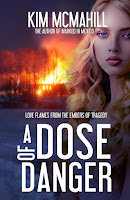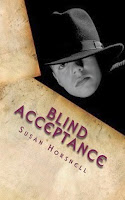Using Multiple Points of View to Create Suspense
There
are a number of different point of view (POV) techniques a writer can employ
such as first person (“I”), third person (“she”), omniscient (all-knowing), and
variations on these techniques. One of my favorites to read and what I prefer
to use when writing my novels is multiple limited third person POV. Multiple third person POV involves writing
separate scenes from the viewpoints of each of the characters. However, one
character is generally more closely followed throughout the story, and is
typically a main character.
The limited third person point of view with multiple
narrators is
a traditional story-telling technique used by writers to increase suspense,
tension, and a sense of crisis. Two different chapters may contain scenes taking
place at exactly the same time, just in different locations. To keep multiple points
of view straight, it is common to switch viewpoints from one chapter to
another.
Some
readers aren’t overly fond of this technique. Personally, I love it. Most of my
favorite authors employ multiple points of view to follow multiple story lines that
always collide in the end to create amazing drama. Sometimes I wonder how these
seemingly non-related stories are going to come together which only ups the
anticipation, and when they do, the result is usually a thrilling grand finale.
 All
of my novels are narrated in multiple limited third person POV. I found this technique
especially effective when creating my Risky Research Series since characters
come and go throughout the series. For example, FBI Agent Devyn Nash played a
fairly minor role in the first novel in the series, A Dose of Danger, but
having a few chapters from her point of view helped to solidify her role in
future novels. She took on a larger role in A Taste of Tragedy, and in the
third novel in the series, A Foundation of Fear, Devyn plays a leading role. By
now, I hope readers have a vested interest in her relationships and her career.
This POV also helps to reintroduce characters by giving them more of a platform
so that each novel can stand alone. So, whether you’re new to the Risky
Research Series or have been with it from the start, I hope you’ll check out
the newest installment, A Foundation of Fear, and enjoy the use of multiple
limited third person point of view.
All
of my novels are narrated in multiple limited third person POV. I found this technique
especially effective when creating my Risky Research Series since characters
come and go throughout the series. For example, FBI Agent Devyn Nash played a
fairly minor role in the first novel in the series, A Dose of Danger, but
having a few chapters from her point of view helped to solidify her role in
future novels. She took on a larger role in A Taste of Tragedy, and in the
third novel in the series, A Foundation of Fear, Devyn plays a leading role. By
now, I hope readers have a vested interest in her relationships and her career.
This POV also helps to reintroduce characters by giving them more of a platform
so that each novel can stand alone. So, whether you’re new to the Risky
Research Series or have been with it from the start, I hope you’ll check out
the newest installment, A Foundation of Fear, and enjoy the use of multiple
limited third person point of view. 



Comments
Post a Comment